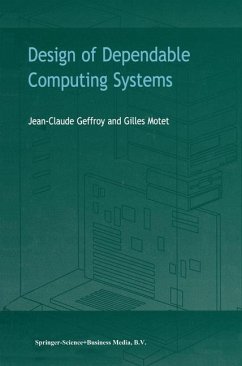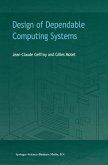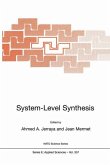This book analyzes the causes of failures in computing systems, their consequences, as weIl as the existing solutions to manage them. The domain is tackled in a progressive and educational manner with two objectives: 1. The mastering of the basics of dependability domain at system level, that is to say independently ofthe technology used (hardware or software) and of the domain of application. 2. The understanding of the fundamental techniques available to prevent, to remove, to tolerate, and to forecast faults in hardware and software technologies. The first objective leads to the presentation of the general problem, the fault models and degradation mechanisms wh ich are at the origin of the failures, and finally the methods and techniques which permit the faults to be prevented, removed or tolerated. This study concerns logical systems in general, independently of the hardware and software technologies put in place. This knowledge is indispensable for two reasons: - A large part of a product' s development is independent of the technological means (expression of requirements, specification and most of the design stage). Very often, the development team does not possess this basic knowledge; hence, the dependability requirements are considered uniquely during the technological implementation. Such an approach is expensive and inefficient. Indeed, the removal of a preliminary design fault can be very difficult (if possible) if this fault is detected during the product's final testing.
Bitte wählen Sie Ihr Anliegen aus.
Rechnungen
Retourenschein anfordern
Bestellstatus
Storno








